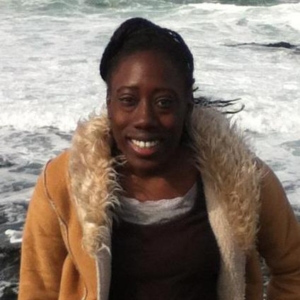No Longer Hiding
For the longest time, I did not let anyone in. If anyone asked how I was doing, I would just say, “I’m fine,” and they’d stop asking. Now, I’m vocal about my mental health struggles; I’m no longer hiding, and I’m no longer silent.
My life has been a wild ride, from childhood trauma to struggling under the weight of my own mind. I’ve come so far, and it amazes me that I am still here—I honestly was not sure I would make it to 18. My relationship with food and with my body has not always been the best, for two big reasons: the trauma I experienced, and the insecurity of growing up not knowing if I would have enough food to eat.
I was removed from a turbulent living situation at age nine and put into foster care, later living with family members. In my new home, food was readily available, but I still had trouble eating and adjusting. I had been through a lot, and I thought by not eating, I was gaining a sense of control.
When I was 14 years old, there was a lot of pressure and stress: starting high school, navigating legal troubles with my mother, coping with my past abuse haunting me, dealing with school bullying, and beginning to realize my sexual orientation. I felt like I was going crazy. I started a diet, thinking that maybe if I lost weight things would somehow be better. I began purging, skipping meals, fasting, and using laxatives and diuretics. The deeper my depression got, the more isolated I became.
At 16, I realized that I was gay. It caused a lot of inner turmoil, especially with my religious upbringing. Being a teenager is tough, even more so if you identify as LGBT. I had dealt with my share of racism already, but bigotry and homophobia compounded that. In addition to using my eating disorder to cope, I began self-harming. I was outed at school, which cost me some friends. At 17, I came out to my family—a situation that got better with time. Still, no one knew what was going on about my eating disorder.
When I was 18, I got to a dangerously low weight, and I got very sick—and that’s when people noticed. Unfortunately, no one took me seriously or believed me because I was a black girl with a “white girl disease.” Family members did not understand, and even doctors dismissed me and said it was “all in my head” and there was nothing to worry about. After that, I took a nosedive and got much worse; I was constantly fainting due to dehydration and electrolyte imbalances, my depression had me at rock bottom, I was constantly in and out of hospitals, I didn’t really have any friends, and I didn’t even have the energy to do my strenuous workout routine.
I eventually got a new, more well-meaning team of doctors, and my family came around, though it took them some time. I was diagnosed with anorexia, and then later other specified feeding or eating disorder (OSFED). I didn’t want to believe that I had a problem, but the misery of my situation had sunk in, and I at least wanted to know if I had a chance to live differently. Getting treatment was extremely difficult; my insurance was not accepted and I did not see black girls like me, with eating disorders, as part of the conversation. I finally found a good therapist and a supportive group of friends, and I started my recovery in 2011.
Recovery has been a rough journey, with big swings, lapses, and still moments, and a steady climb back upwards. There are some health consequences I still have to deal with, especially regarding the noticeable damage to my teeth. However, I have more hope now than I ever did at the beginning, and far more than I had in 2009, at my sickest. I’m learning, I’m giving recovery a chance, and I have a good support system backing me up.
It’s important to let your voice be heard and get help. I always used to be shy, but I’m constantly working on letting my voice be heard and standing up for what I believe in regardless of the pressure of society, my peers, and my family. I’m steadily working on loving myself, realizing that my weight does not dictate my worth, and letting others in. I used to want to shrink away—sometimes I still do, but I am realizing that I deserve to take up space. It’s okay not to be okay sometimes, it’s okay to feel, and no matter how many times you fall, just keep rising. It’s worth it.
Lakesha Lafayett is California native, a mental health advocate, a poet and published author. She loves reading, writing, being a peer support specialist, and working in the community.
This story is part of the Marginalized Voices Project. Learn more.





